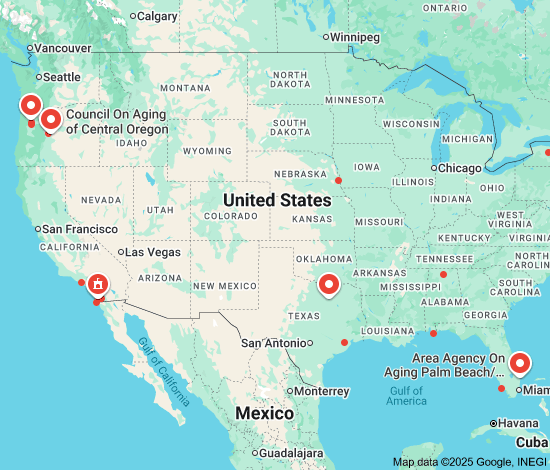The Role of Task Forces in Community Advocacy
Task forces play a crucial role in community advocacy by bringing together individuals with a shared passion for creating positive change. These groups are typically formed to address specific issues or challenges within a community and work towards finding solutions through collaboration, research, and advocacy.
Task forces are often composed of experts, stakeholders, and community members who have a vested interest in the issue at hand. By pooling their knowledge, resources, and energy, task forces can effectively identify root causes, develop strategies, and implement initiatives to bring about meaningful change.
One of the key strengths of task forces is their ability to mobilize diverse perspectives and expertise towards a common goal. This diversity allows for comprehensive problem-solving approaches that take into account various viewpoints and considerations. Additionally, task forces often have the flexibility to adapt quickly to changing circumstances and priorities, making them agile and responsive entities in the realm of community advocacy.
Task forces also serve as catalysts for raising awareness about important issues within the community. Through outreach efforts, education campaigns, and strategic partnerships, task forces can amplify their message and engage a broader audience in advocating for change.
In conclusion, task forces are vital components of community advocacy efforts. By leveraging collective expertise, fostering collaboration, and driving targeted action plans, task forces play a critical role in effecting positive social change and improving the well-being of communities.
Unlocking Community Potential: 7 Benefits of Task Forces in Driving Positive Change
- Task forces bring together diverse expertise to tackle complex issues.
- They foster collaboration and teamwork among stakeholders.
- Task forces can respond quickly to emerging challenges and opportunities.
- They provide a platform for community members to voice their concerns and ideas.
- Task forces raise awareness about important issues through advocacy efforts.
- They drive targeted action plans to address specific community needs.
- Task forces serve as catalysts for positive social change within communities.
Challenges Facing Task Forces: Sustainability, Consensus, and Resource Demands
- Task forces may face challenges in maintaining long-term sustainability and continuity, as members may have competing priorities or limited availability.
- In some cases, task forces may struggle to reach consensus on key issues due to differing opinions or conflicting agendas among members.
- Task forces can sometimes be resource-intensive, requiring significant time, effort, and funding to effectively address complex community issues.
Task forces bring together diverse expertise to tackle complex issues.
Task forces serve as valuable platforms for harnessing a wide range of expertise to address intricate and multifaceted challenges. By assembling individuals with diverse backgrounds, knowledge, and perspectives, task forces can cultivate innovative solutions that consider various angles and nuances of complex issues. This collaborative approach not only enhances the depth and quality of problem-solving but also fosters a more comprehensive understanding of the challenges at hand. Ultimately, the diverse expertise brought together by task forces enables them to tackle complex issues with creativity, efficiency, and effectiveness, leading to impactful outcomes in community advocacy efforts.
They foster collaboration and teamwork among stakeholders.
Task forces excel in fostering collaboration and teamwork among stakeholders by providing a platform for individuals with diverse backgrounds and expertise to come together towards a common goal. Through open communication, shared decision-making, and mutual respect, task forces create an environment where stakeholders can leverage their unique perspectives to develop innovative solutions and drive collective action. By promoting collaboration, task forces not only enhance the effectiveness of advocacy efforts but also cultivate a sense of unity and shared purpose among participants, ultimately leading to more impactful outcomes for the community they serve.
Task forces can respond quickly to emerging challenges and opportunities.
Task forces possess the valuable ability to respond swiftly to emerging challenges and opportunities within a community or organization. By being nimble and adaptable, task forces can mobilize resources, expertise, and strategies efficiently to address pressing issues or capitalize on new possibilities. This agility allows task forces to stay ahead of the curve, seize timely opportunities for positive change, and effectively navigate dynamic environments with speed and precision.
They provide a platform for community members to voice their concerns and ideas.
Task forces serve as a valuable platform for community members to voice their concerns and ideas, fostering inclusivity and empowerment within the community. By providing a space for individuals to share their perspectives, experiences, and suggestions, task forces ensure that a diverse range of voices is heard and considered in decision-making processes. This inclusive approach not only strengthens community engagement but also enhances the relevance and effectiveness of advocacy efforts by incorporating the input and support of those directly affected by the issues at hand.
Task forces raise awareness about important issues through advocacy efforts.
Task forces serve as powerful vehicles for raising awareness about critical issues through dedicated advocacy efforts. By engaging in outreach activities, educational campaigns, and strategic partnerships, task forces effectively amplify their message and mobilize support for their cause. Through targeted advocacy initiatives, task forces can shine a spotlight on pressing issues, educate the public, and inspire action to address key challenges facing communities.
They drive targeted action plans to address specific community needs.
Task forces excel in driving targeted action plans to address specific community needs by harnessing the collective expertise and resources of their members. Through focused research, strategic planning, and collaboration, task forces are able to identify key areas of concern within a community and develop precise initiatives to tackle these challenges head-on. By setting clear objectives and timelines, task forces ensure that their efforts are purposeful and results-oriented, leading to tangible outcomes that directly benefit the community they serve.
Task forces serve as catalysts for positive social change within communities.
Task forces serve as catalysts for positive social change within communities by mobilizing diverse perspectives, expertise, and resources towards addressing pressing issues. Through their collaborative efforts, task forces can raise awareness, drive advocacy campaigns, and implement targeted initiatives that lead to tangible improvements in the well-being of community members. By engaging stakeholders and fostering partnerships, task forces play a pivotal role in galvanizing support and creating momentum for change, ultimately contributing to a more inclusive, equitable, and empowered society.
Task forces may face challenges in maintaining long-term sustainability and continuity, as members may have competing priorities or limited availability.
Task forces may encounter difficulties in ensuring long-term sustainability and continuity due to members’ conflicting priorities or restricted availability. As individuals involved in task forces often have diverse commitments and responsibilities outside of their advocacy work, maintaining consistent participation and engagement can be a significant challenge. This can lead to fluctuations in membership, disruptions in ongoing projects, and difficulties in preserving institutional knowledge and momentum over time. Addressing these issues requires proactive strategies for recruitment, retention, and succession planning to sustain the effectiveness and impact of task forces in the long run.
In some cases, task forces may struggle to reach consensus on key issues due to differing opinions or conflicting agendas among members.
In some instances, task forces may encounter challenges in reaching consensus on critical issues as a result of varying opinions or conflicting agendas among members. When divergent viewpoints and conflicting interests arise within the group, decision-making processes can become prolonged and contentious, hindering the task force’s ability to effectively address the issue at hand. This lack of consensus can impede progress and diminish the task force’s overall impact, highlighting the importance of fostering open communication, facilitating constructive dialogue, and finding common ground to overcome such obstacles in collaborative advocacy efforts.
Task forces can sometimes be resource-intensive, requiring significant time, effort, and funding to effectively address complex community issues.
Task forces can sometimes be resource-intensive, demanding a substantial investment of time, effort, and funding to tackle complex community issues effectively. The process of convening diverse stakeholders, conducting research, developing strategies, and implementing initiatives can be laborious and costly. Additionally, sustaining the momentum of a task force over the long term may pose challenges in terms of securing ongoing financial support and maintaining participant engagement. As such, the resource-intensive nature of task forces can present a barrier to their sustainability and impact on addressing community issues.




Leave a Reply